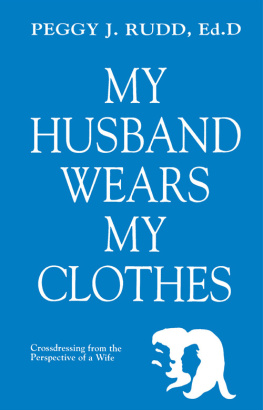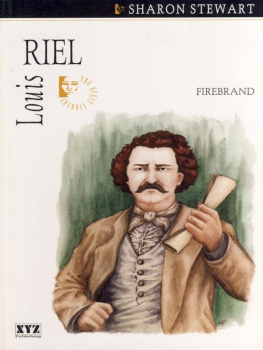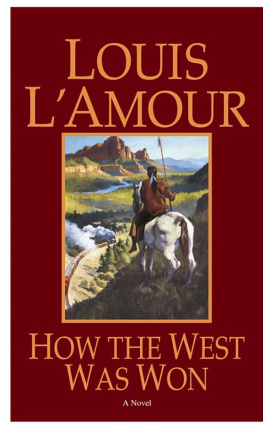Louis Rudd - Endurance
Here you can read online Louis Rudd - Endurance full text of the book (entire story) in english for free. Download pdf and epub, get meaning, cover and reviews about this ebook. year: 2020, publisher: Pan Macmillan UK, genre: Non-fiction. Description of the work, (preface) as well as reviews are available. Best literature library LitArk.com created for fans of good reading and offers a wide selection of genres:
Romance novel
Science fiction
Adventure
Detective
Science
History
Home and family
Prose
Art
Politics
Computer
Non-fiction
Religion
Business
Children
Humor
Choose a favorite category and find really read worthwhile books. Enjoy immersion in the world of imagination, feel the emotions of the characters or learn something new for yourself, make an fascinating discovery.
- Book:Endurance
- Author:
- Publisher:Pan Macmillan UK
- Genre:
- Year:2020
- Rating:5 / 5
- Favourites:Add to favourites
- Your mark:
- 100
- 1
- 2
- 3
- 4
- 5
Endurance: summary, description and annotation
We offer to read an annotation, description, summary or preface (depends on what the author of the book "Endurance" wrote himself). If you haven't found the necessary information about the book — write in the comments, we will try to find it.
Endurance — read online for free the complete book (whole text) full work
Below is the text of the book, divided by pages. System saving the place of the last page read, allows you to conveniently read the book "Endurance" online for free, without having to search again every time where you left off. Put a bookmark, and you can go to the page where you finished reading at any time.
Font size:
Interval:
Bookmark:


To my best friend, mother of my three wonderful children and wife, Lucy. No man could ask for a more loyal, loving and supportive partner. Without her strength and blessing none of this would have been possible.
To Henry Worsley, for inspiring me, mentoring me in the dark arts of polar travel, and providing me with a true appreciation of polar history and a deep love of Antarctica. I owe him everything. Onwards.
If youre going through hell, keep going.
W INSTON C HURCHILL
It was 29 November 2018 and for four long days I had been trapped in a whiteout. I was skiing blind, but in the complete opposite of total darkness. It was light but I could see nothing beyond the length of my arm, not the sky above nor the ice beneath my feet. There was no wind and no sound apart from the endless crunching of ice under my skis. It was the twenty-seventh day of my attempt to complete a 920-mile, solo unsupported traverse of the Antarctic landmass something no one had managed to achieve before without wind assistance from a kite or food resupplies. Antarctica had defeated more experienced men than me.
I had already carved my way through more than 500 miles of polar ice when disaster beckoned. My pace had slowed to that of a crawl and my sweat was beginning to freeze against the inside of my clothing. I had covered around half a mile in an hour and I was physically and mentally exhausted. I could barely take a step without stumbling, jarring a knee, hip or ankle.
My pulk the sledge tethered to my waist was acting like an anchor on the ice, almost as if it had a mind of its own, slipping in one direction then another, knocking me off balance or dragging me backwards.
For the past few days I had been breaking trail through a tortuous span of wind-blown waves of ice, known as sastrugi, that stretch across almost the whole of Antarctica. The abstract shapes are created during the winter months, when winds sweep across the continent at 120 mph. In places the surface appeared like an ocean, frozen in the midst of a powerful storm, where towering ice sculptures, some as big as cars, had risen up out of the snow. It was a spectacular sight but a nightmare to traverse, and the cause of many expedition failures. I had heard of people getting motion sickness as they tried to ski across sastrugi in a whiteout and I could now understand why. My sensory awareness had disappeared, and my balance was faltering with every slide forward. I began skiing with my legs further apart to try to balance better, and even spread my toes wide inside my boots in a forlorn effort to feel the terrain below me. My skis were constantly bending and flexing and I fell every few yards.
I fought hard to keep the negative thoughts out of my consciousness, the doubts that I was physically strong enough to finish. Instead I focused on the pain and the cold. It was a never-ending mental battle not to lose my temper and curse the ice and the weather. On previous expeditions, as a member of a team, I had seen how tough, experienced men and women were mentally unravelled by sastrugi, striking the ice with their poles as they gave way to frustration. But when you are going solo you cant afford the luxury of anger.
I was being tested, I told myself. The Great White Queen was playing with me, seeing how far she could push me until I snapped, and when that happened it would be the beginning of the end. Once there was the tiniest chink in my mental armour, I sensed I would unravel quickly. An hour in those conditions is enough to break the spirit of any sane person, let alone three days.
Of all the physical challenges Ive undertaken including SAS selection cutting a trail alone through a field of sastrugi, in zero visibility, on the way to the South Pole must count as one of the hardest.
After twenty-five years in the SAS, and having found myself in some tricky situations, I was confident I could manage my emotions better than some. Ive always been able to think clearly, even when being shot at in the middle of a firefight, and I was able to bring that calmness with me to Antarctica. It was the one element of my character that I had always believed would never fail but on this journey it was being tested like never before.
My knees, hip and ankles were bruised and raw, the sastrugi having tripped me more than thirty times that day. At one point my pulk slipped down a deep ridge and dragged me backwards, and for a split second I feared I would be pulled into a deep crevasse.
About an hour later I had a moments loss of concentration, a slip to be honest I cant remember but the consequences were almost catastrophic.
I had just checked my compass, which hung from my chest on a hands-free plastic frame, for the umpteenth time, corrected my bearing, took a deep breath and pushed one ski forward when the ice beneath me disappeared. At the very moment I passed the point of no return I knew I was in trouble. I had stepped into a void and fell off an eight-foot-high ice ridge. I face-planted into the granite-hard ice below with such force that the impact drove the air from my lungs it was as if I had been hit in the ribs by an uppercut from a heavyweight boxer. But worse was to come. My pulk followed and came crashing down on the back of my legs the sucker punch.
The metallic taste of blood filled my mouth as the pain from the impact drilled up through my crumpled body. I assumed my legs were broken and my mind went into overdrive as I mentally rattled off a survival check list. I had to try to get to my satellite phone or emergency locator beacon before I passed out from the pain. But then rescue, I knew, would be delayed in a whiteout. And anyway, an aircraft couldnt land in the sastrugi field I was now in, so by the time any rescuers arrived I would be dead, entombed in ice, another soul lost to the Antarctic.
The pain of a fracture never arrived. My pride and chest were heavily bruised nothing more. I took a few deep breaths and pushed the pulk away from my legs. I had dodged a bullet again, just like I had on a few occasions in Iraq and Afghanistan. I was once again reminded of my mortality, but there was no time to dwell. I had to push on and walk the fine line between caution and risk. If I slowed down and waited for the whiteout to pass I risked running out of food, but I was unlikely to walk away from another bad fall.
I took a few minutes to catch my breath and get my bearings. Every bit of my body ached and as I slowly moved forward again, I couldnt stop the doubts creeping in once more. How did I come to be here? How much more of this could I take?
Had we lived, I should have had a tale to tell of the hardihood, endurance and courage of my companions which would have stirred the heart of every Englishman. These rough notes and our dead bodies must tell the tale.
C APTAIN R OBERT F ALCON S COTT
People always assume that I must like being cold. I dont like being cold who does? But Ive always been drawn to cold climates. My father says it was because I was born in a blizzard in February 1969, when much of the country was virtually encased in ice. According to family legend, my father was driving my heavily pregnant mother to hospital when the car got caught in a snowdrift and broke down. It seems that an al-fresco birth was only prevented when my dad managed to flag down a passing newspaper delivery van and hitch a lift to the hospital.
Font size:
Interval:
Bookmark:
Similar books «Endurance»
Look at similar books to Endurance. We have selected literature similar in name and meaning in the hope of providing readers with more options to find new, interesting, not yet read works.
Discussion, reviews of the book Endurance and just readers' own opinions. Leave your comments, write what you think about the work, its meaning or the main characters. Specify what exactly you liked and what you didn't like, and why you think so.

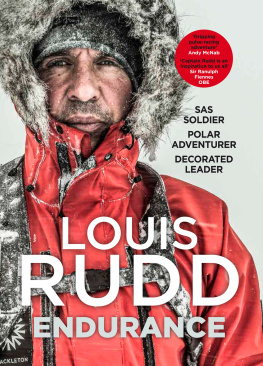
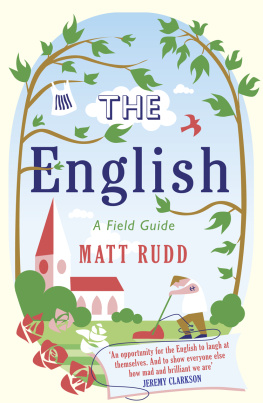

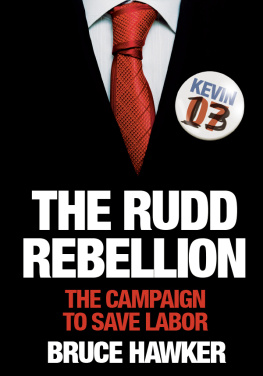

![Louis de Montfort - The Saint Louis de Montfort Collection [7 Books]](/uploads/posts/book/265822/thumbs/louis-de-montfort-the-saint-louis-de-montfort.jpg)

